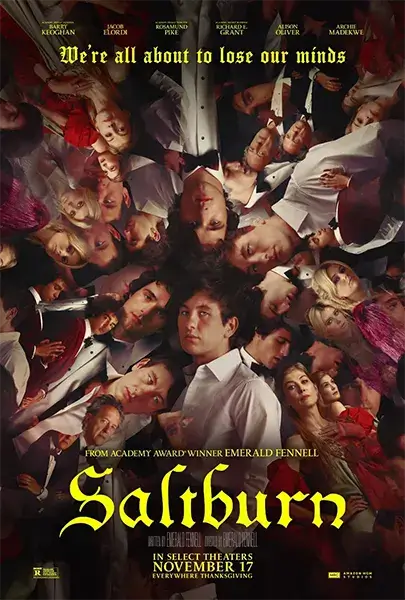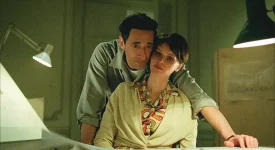(may contain spoilers)
The Pig, the Snake and the Pigeon
Douban rating: 8.1
Director: Wong Ching-po
Starring: Ethan Juan, Ben Yuen, Chen Yi-wen
Douban Comments: “’The Pig, the Snake, and the Pigeon’ is the English translation of the story ‘Zhou Chu Eliminates the Three Evils’, which happens to correspond perfectly to the ‘Three Poisons’ in Buddhist reincarnation: greed, hatred, and ignorance. The pig represents ignorance, meaning a lack of understanding and inability to distinguish between good and evil, leading to all kinds of wrongful acts. This symbolizes Chen Guilin’s evil, with his grandmother’s pig-shaped watch serving as an emblem. The snake represents hatred, arising from adverse circumstances and resulting in violent rage, aptly corresponding to Xianggangzai’s brutal bullying, who also has a snake tattoo on his hand. The pigeon represents greed, characterized by dissatisfaction unless one’s desires are met. This is represented by Lin Luhe, who appears gentle but is actually greedy, with pigeon wings tattooed on his back.
In Tibetan Buddhist murals, both the snake and the pigeon are depicted as emerging from the mouth of the pig, signifying that all beings’ attachments stem from ignorance, leading to differentiation. Chen Guilin, likened to Zhou Chu, shoots the pigeon and kills the snake, starting with ignorance as the root of evil and ending with letting go of attachments. The Three Poisons are the fundamental causes of all evil deeds. When Chen Guilin dies, the suffering of all beings in the cycle of reincarnation dissipates with him.”
“Considering that the rating is already quite high, my opinion won’t make much difference, so I’ll boldly point out some issues I found:
- The depiction of Chen Guilin’s battle damage is unreasonable; it’s overly exaggerated for him to kick the coffin while wounded.
- Chen Guilin’s motivation for eradicating violence is insufficient and should be strengthened.
- When Chen Guilin kills Xianggangzai and Niutou, he initially doesn’t use a gun, which makes him seem less intelligent.
- The ending is too drawn out compared to the prologue.
- The anecdote about Zhou Chu causing harm shouldn’t be directly mentioned by the protagonist.
- In the scene at the spiritual training class, the chubby kid is forgotten at the end; there should be a shot explaining his situation.
- The character played by Wang Jing reflects the director’s complex for rescuing women in distress, similar to themes in “Triad Underworld” and “Revenge: A Love Story”.
- The police officer doesn’t seem to mind at all that Chen Guilin blinded him in one eye.
- The two biggest fugitives in the region couldn’t be found by the police, yet Chen Guilin finds them immediately.
Overall, the movie is still worth watching. The high ratings are mainly because mainland Chinese audiences, who are not used to bloody films, have seen too few of them. The censorship cycle always alternates between lenient and strict. Anti-cult films making it to the big screen is positive, and it might be worth making a separate film on that theme.”
Poor Things

Douban rating: 6.9
Director: Yorgos Lanthimos
Starring: Emma Stone, Mark Ruffalo, Willem Dafoe
Douban Comments: “At the 80th Venice Film Festival, the audience erupted into applause and were reluctant to leave for a long time. The actors’ exuberant performances merged seamlessly with the fantastical yet realistic sets, creating a dreamlike world of Lisbon, sailing ships, and snow-covered Paris. It depicted a beautiful world as if in a dream, where humans are portrayed as the most hideous, fragile, and lonely creatures. Yet, living is an incredibly magnificent and wonderful experience. The film offers a satirical discussion on religion and philosophy, and explores the complex and subtle power dynamics of a patriarchal society. In the end, Bella forgives God and becomes the new God. With a dark version of Barbie and a hedonistic Ken played by Mark Ruffalo, it is a work of absolute freedom, boldness, and impact. I absolutely adore the director’s vibrant talent.”
“This year’s cult female film. ‘Barbie’ is a fairy tale, while ‘Poor Things’ is a dark fairy tale. The original work, combined with Yorgos Lanthimos’s eerie design and Emma Stone’s explosive performance, creates a female Frankenstein who swims in a sea of sexual addiction. The film traces her journey from being modified by men to modifying men herself, transforming from a pitiable creature into an enlightened woman. Through a child’s perspective and fisheye lens, the film explores the good and evil of humanity, with various surreal settings that are breathtakingly beautiful. The smiling God at the end is likely Lanthimos himself… (It’s impressive how the Golden Lion Award can still be so edgy at 80 years old).”
“The first thirty minutes are not bad; the birth and confusion of the female Frankenstein, along with the steampunk world, are eerie yet captivating. However, once Mark Ruffalo appears, everything falls apart. The film’s excessive focus on female sexuality is filled with the male director’s misunderstanding of the second and third waves of feminism. It also proves that no matter how much a sleazy person tries to appear pure, they can’t hide their sleaziness. This mindset is fully exposed in the unnecessarily elaborate ending: while it seems like Bella is rebelling against something, in reality, nothing has changed—she has merely become a part of the male-dominated society.”
Saltburn

Douban rating: 6.7
Director: Emerald Fennell
Starring: Barry Keoghan, Jacob Elordi, Rosamund Pike
Douban Comments: “At first glance, it seemed like ‘The Go-Between’, then it shifted towards ‘The Talented Mr. Ripley’, and finally, it turned out to be ‘Parasite’. This convoluted romance story actually has many issues, especially in the latter half, which feels rushed. However, the director’s morbid aesthetics are exceptionally striking. Barry Keoghan’s acting is truly one-of-a-kind among actors born in the ’90s. I can’t think of anyone else who could dance nude and wildly in a castle, exuding an evil yet broken aura…”
“If it were just a revenge story about class conflict, there wouldn’t be a need to make it so wild. Until the ending, I thought it was a reverse version of ‘American Psycho’ set in a manor, but the ending was quite disappointing. The director used postmodern aesthetics in the audiovisual presentation to prop up an empty story. The quick-cut montages and red-blue lighting during the Saltburn period created a great atmosphere. There were many changes in audiovisual details as well (for example, when Felix first showed Oliver around Saltburn, the perspective was narrow and mostly obscured, but when Oliver danced by himself at the end, the view was expansive, and the camera movement was fluid). I particularly enjoyed the middle part of the film where fantasy and reality intersected. The few sex scenes were unexpected and felt hollow. Overall, it’s a film that revels in local culture.”
“The biggest problem with this film is that it ultimately gives off a crude and greasy feeling… other than that, there isn’t much to criticize. The story itself is quite blunt and straightforward. The core logic of Oliver’s character, and the entire film, is to assert power through sex. This monotonous behavioral pattern is fairly predictable, making the latter half of the plot devoid of any real surprises. Due to the entanglement of sex and power, Oliver’s character exhibits clear dominant/submissive (d/s) tendencies. He enjoys playing the weakling, or more accurately, he identifies the psychological weaknesses of his targets and customizes a bait for them, then proceeds to prey on them. He revels in the process of luring and controlling his victims. Barry Keoghan fits this role well; his Oliver is like a brooding snake that enjoys pretending to be an innocent fawn. He embodies animalistic precision.”








